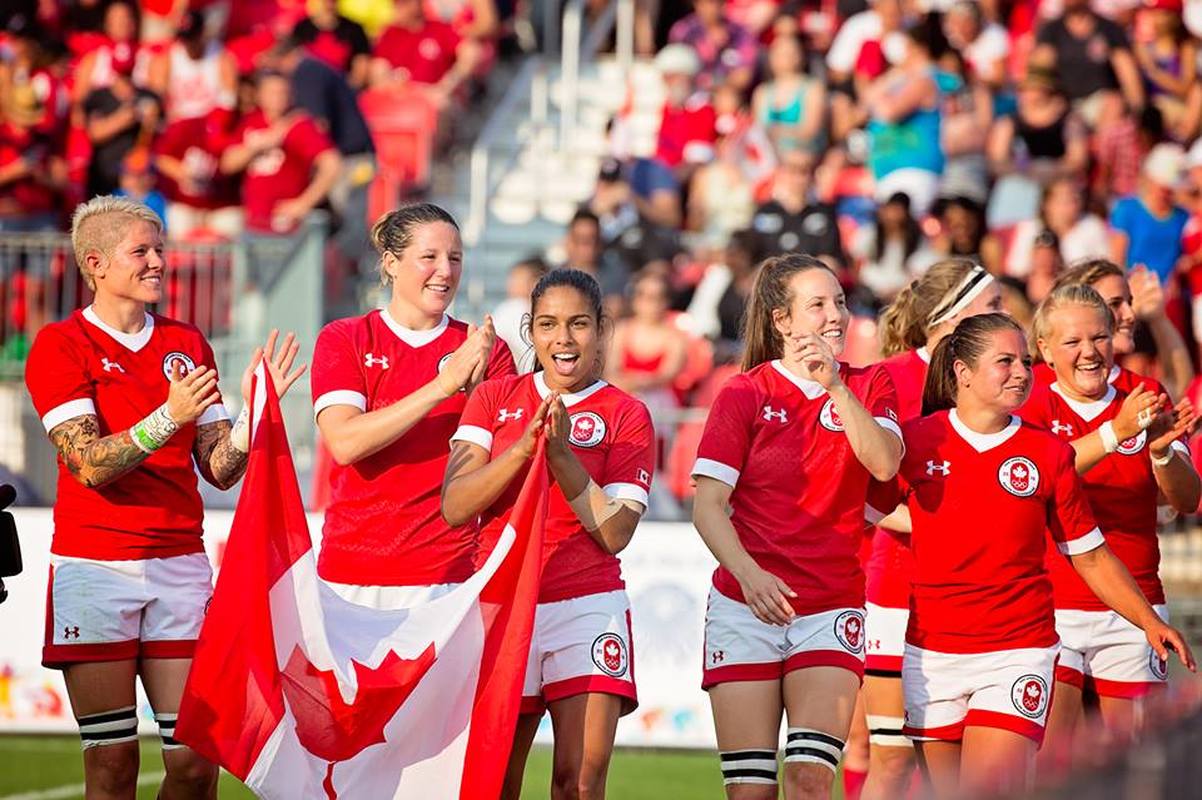
Olympic Medalist Natasha Watcham-Roy Retires from Canada Rugby Sevens
Natasha Watcham-Roy announces her retirement from Canada's National Rugby Sevens team and sheds light on the importance of mental health.
After having some time to sit back and reflect since I left the 7s team in August, I am officially honoured to let everyone know about my decision to retire from the National Women’s Rugby 7s Team. The decision was not an easy one for me but in my heart I know it is the right one for my overall happiness. I am thankful for all the amazing opportunities that I have experienced with my teammates and I loved sharing those moments with my family and friends. It is crazy to think that I have been playing rugby for fourteen years and have dedicated my life to achieving my ultimate goal of becoming an Olympian.
I have been inspired and encouraged by my friends and family to not just announce my retirement but to take a moment and share my story with you:
High performance sport comes with a lot of glory and amazing times but what people don’t see behind the scenes are the challenges that we face day to day. Throughout the 2017-2018 season I kept experiencing these “down days” that I couldn’t explain. I started experiencing changes in my daily motivation and found myself very disconnected physically and emotionally. Rugby, a sport that I loved so much and that had provided me with so much joy, was starting to feel like a chore.
When I finally built up the confidence to reach out for help, I was provided with support and resources. I was diagnosed with Depression and Anxiety. After much soul searching I started to realize it was time to take control of my life and stop pretending that everything was always okay because guess what? ..sometimes it’s just not! I had built up walls trying to protect myself from emotions and pain but those walls had begun to crumble.
With the resources provided by Rugby Canada, it seemed to the outside world that I was getting everything I needed to get back on the field, but I still didn’t feel right. I was feeling pressured to get back on the field quickly rather than being encouraged to take the time I needed to heal. That being said, I put a lot of that pressure on myself to return because I did not want to let my teammates down. I was far from ready to go back, it just made my depression and anxiety worse.
What we don’t realize as athletes is that our mental well-being is just as important as our physical well-being. Mental health experiences need to be treated with the same respect and support as a physical injury. Whether we like it or not there is still a stigma attached to mental health experiences in high performance sport. Mental health experiences are still not addressed or spoken about and athletes are left struggling alone and in silence.
The more we talk openly about mental health in sport the better it will be! Have an open heart and mind and encourage someone struggling to talk to you or a professional. I am thankful to my friends and family who were there to support me through my darkest moments, it made the process of accepting myself much easier.
I encourage athletes not to suffer in silence. In the future we need to ensure that an athlete’s mental and emotional well-being is a priority, taken seriously with respect and support.
Thank you to everyone who has been a part of my journey and for letting me share my story with you!